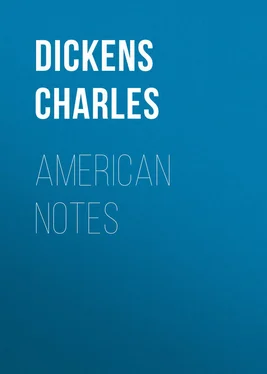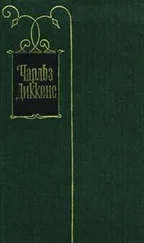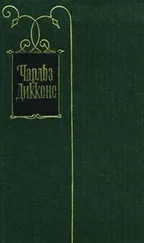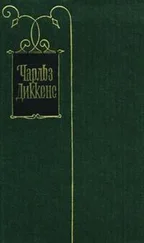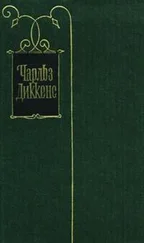Чарльз Диккенс - American Notes
Здесь есть возможность читать онлайн «Чарльз Диккенс - American Notes» — ознакомительный отрывок электронной книги совершенно бесплатно, а после прочтения отрывка купить полную версию. В некоторых случаях можно слушать аудио, скачать через торрент в формате fb2 и присутствует краткое содержание. Жанр: foreign_antique, foreign_prose, на английском языке. Описание произведения, (предисловие) а так же отзывы посетителей доступны на портале библиотеки ЛибКат.
- Название:American Notes
- Автор:
- Жанр:
- Год:неизвестен
- ISBN:нет данных
- Рейтинг книги:5 / 5. Голосов: 1
-
Избранное:Добавить в избранное
- Отзывы:
-
Ваша оценка:
- 100
- 1
- 2
- 3
- 4
- 5
American Notes: краткое содержание, описание и аннотация
Предлагаем к чтению аннотацию, описание, краткое содержание или предисловие (зависит от того, что написал сам автор книги «American Notes»). Если вы не нашли необходимую информацию о книге — напишите в комментариях, мы постараемся отыскать её.
American Notes — читать онлайн ознакомительный отрывок
Ниже представлен текст книги, разбитый по страницам. Система сохранения места последней прочитанной страницы, позволяет с удобством читать онлайн бесплатно книгу «American Notes», без необходимости каждый раз заново искать на чём Вы остановились. Поставьте закладку, и сможете в любой момент перейти на страницу, на которой закончили чтение.
Интервал:
Закладка:
The captain being gone, we compose ourselves to read, if the place be light enough; and if not, we doze and talk alternately. At one, a bell rings, and the stewardess comes down with a steaming dish of baked potatoes, and another of roasted apples; and plates of pig’s face, cold ham, salt beef; or perhaps a smoking mess of rare hot collops. We fall to upon these dainties; eat as much as we can (we have great appetites now); and are as long as possible about it. If the fire will burn (it will sometimes) we are pretty cheerful. If it won’t, we all remark to each other that it’s very cold, rub our hands, cover ourselves with coats and cloaks, and lie down again to doze, talk, and read (provided as aforesaid), until dinner-time. At five, another bell rings, and the stewardess reappears with another dish of potatoes – boiled this time – and store of hot meat of various kinds: not forgetting the roast pig, to be taken medicinally. We sit down at table again (rather more cheerfully than before); prolong the meal with a rather mouldy dessert of apples, grapes, and oranges; and drink our wine and brandy-and-water. The bottles and glasses are still upon the table, and the oranges and so forth are rolling about according to their fancy and the ship’s way, when the doctor comes down, by special nightly invitation, to join our evening rubber: immediately on whose arrival we make a party at whist, and as it is a rough night and the cards will not lie on the cloth, we put the tricks in our pockets as we take them. At whist we remain with exemplary gravity (deducting a short time for tea and toast) until eleven o’clock, or thereabouts; when the captain comes down again, in a sou’-wester hat tied under his chin, and a pilot-coat: making the ground wet where he stands. By this time the card-playing is over, and the bottles and glasses are again upon the table; and after an hour’s pleasant conversation about the ship, the passengers, and things in general, the captain (who never goes to bed, and is never out of humour) turns up his coat collar for the deck again; shakes hands all round; and goes laughing out into the weather as merrily as to a birthday party.
As to daily news, there is no dearth of that commodity. This passenger is reported to have lost fourteen pounds at Vingt-et-un in the saloon yesterday; and that passenger drinks his bottle of champagne every day, and how he does it (being only a clerk), nobody knows. The head engineer has distinctly said that there never was such times – meaning weather – and four good hands are ill, and have given in, dead beat. Several berths are full of water, and all the cabins are leaky. The ship’s cook, secretly swigging damaged whiskey, has been found drunk; and has been played upon by the fire-engine until quite sober. All the stewards have fallen down-stairs at various dinner-times, and go about with plasters in various places. The baker is ill, and so is the pastry-cook. A new man, horribly indisposed, has been required to fill the place of the latter officer; and has been propped and jammed up with empty casks in a little house upon deck, and commanded to roll out pie-crust, which he protests (being highly bilious) it is death to him to look at. News! A dozen murders on shore would lack the interest of these slight incidents at sea.
Divided between our rubber and such topics as these, we were running (as we thought) into Halifax Harbour, on the fifteenth night, with little wind and a bright moon – indeed, we had made the Light at its outer entrance, and put the pilot in charge – when suddenly the ship struck upon a bank of mud. An immediate rush on deck took place of course; the sides were crowded in an instant; and for a few minutes we were in as lively a state of confusion as the greatest lover of disorder would desire to see. The passengers, and guns, and water-casks, and other heavy matters, being all huddled together aft, however, to lighten her in the head, she was soon got off; and after some driving on towards an uncomfortable line of objects (whose vicinity had been announced very early in the disaster by a loud cry of ‘Breakers a-head!’) and much backing of paddles, and heaving of the lead into a constantly decreasing depth of water, we dropped anchor in a strange outlandish-looking nook which nobody on board could recognise, although there was land all about us, and so close that we could plainly see the waving branches of the trees.
It was strange enough, in the silence of midnight, and the dead stillness that seemed to be created by the sudden and unexpected stoppage of the engine which had been clanking and blasting in our ears incessantly for so many days, to watch the look of blank astonishment expressed in every face: beginning with the officers, tracing it through all the passengers, and descending to the very stokers and furnacemen, who emerged from below, one by one, and clustered together in a smoky group about the hatchway of the engine-room, comparing notes in whispers. After throwing up a few rockets and firing signal guns in the hope of being hailed from the land, or at least of seeing a light – but without any other sight or sound presenting itself – it was determined to send a boat on shore. It was amusing to observe how very kind some of the passengers were, in volunteering to go ashore in this same boat: for the general good, of course: not by any means because they thought the ship in an unsafe position, or contemplated the possibility of her heeling over in case the tide were running out. Nor was it less amusing to remark how desperately unpopular the poor pilot became in one short minute. He had had his passage out from Liverpool, and during the whole voyage had been quite a notorious character, as a teller of anecdotes and cracker of jokes. Yet here were the very men who had laughed the loudest at his jests, now flourishing their fists in his face, loading him with imprecations, and defying him to his teeth as a villain!
The boat soon shoved off, with a lantern and sundry blue lights on board; and in less than an hour returned; the officer in command bringing with him a tolerably tall young tree, which he had plucked up by the roots, to satisfy certain distrustful passengers whose minds misgave them that they were to be imposed upon and shipwrecked, and who would on no other terms believe that he had been ashore, or had done anything but fraudulently row a little way into the mist, specially to deceive them and compass their deaths. Our captain had foreseen from the first that we must be in a place called the Eastern passage; and so we were. It was about the last place in the world in which we had any business or reason to be, but a sudden fog, and some error on the pilot’s part, were the cause. We were surrounded by banks, and rocks, and shoals of all kinds, but had happily drifted, it seemed, upon the only safe speck that was to be found thereabouts. Eased by this report, and by the assurance that the tide was past the ebb, we turned in at three o’clock in the morning.
I was dressing about half-past nine next day, when the noise above hurried me on deck. When I had left it overnight, it was dark, foggy, and damp, and there were bleak hills all round us. Now, we were gliding down a smooth, broad stream, at the rate of eleven miles an hour: our colours flying gaily; our crew rigged out in their smartest clothes; our officers in uniform again; the sun shining as on a brilliant April day in England; the land stretched out on either side, streaked with light patches of snow; white wooden houses; people at their doors; telegraphs working; flags hoisted; wharfs appearing; ships; quays crowded with people; distant noises; shouts; men and boys running down steep places towards the pier: all more bright and gay and fresh to our unused eyes than words can paint them. We came to a wharf, paved with uplifted faces; got alongside, and were made fast, after some shouting and straining of cables; darted, a score of us along the gangway, almost as soon as it was thrust out to meet us, and before it had reached the ship – and leaped upon the firm glad earth again!
Читать дальшеИнтервал:
Закладка:
Похожие книги на «American Notes»
Представляем Вашему вниманию похожие книги на «American Notes» списком для выбора. Мы отобрали схожую по названию и смыслу литературу в надежде предоставить читателям больше вариантов отыскать новые, интересные, ещё непрочитанные произведения.
Обсуждение, отзывы о книге «American Notes» и просто собственные мнения читателей. Оставьте ваши комментарии, напишите, что Вы думаете о произведении, его смысле или главных героях. Укажите что конкретно понравилось, а что нет, и почему Вы так считаете.
